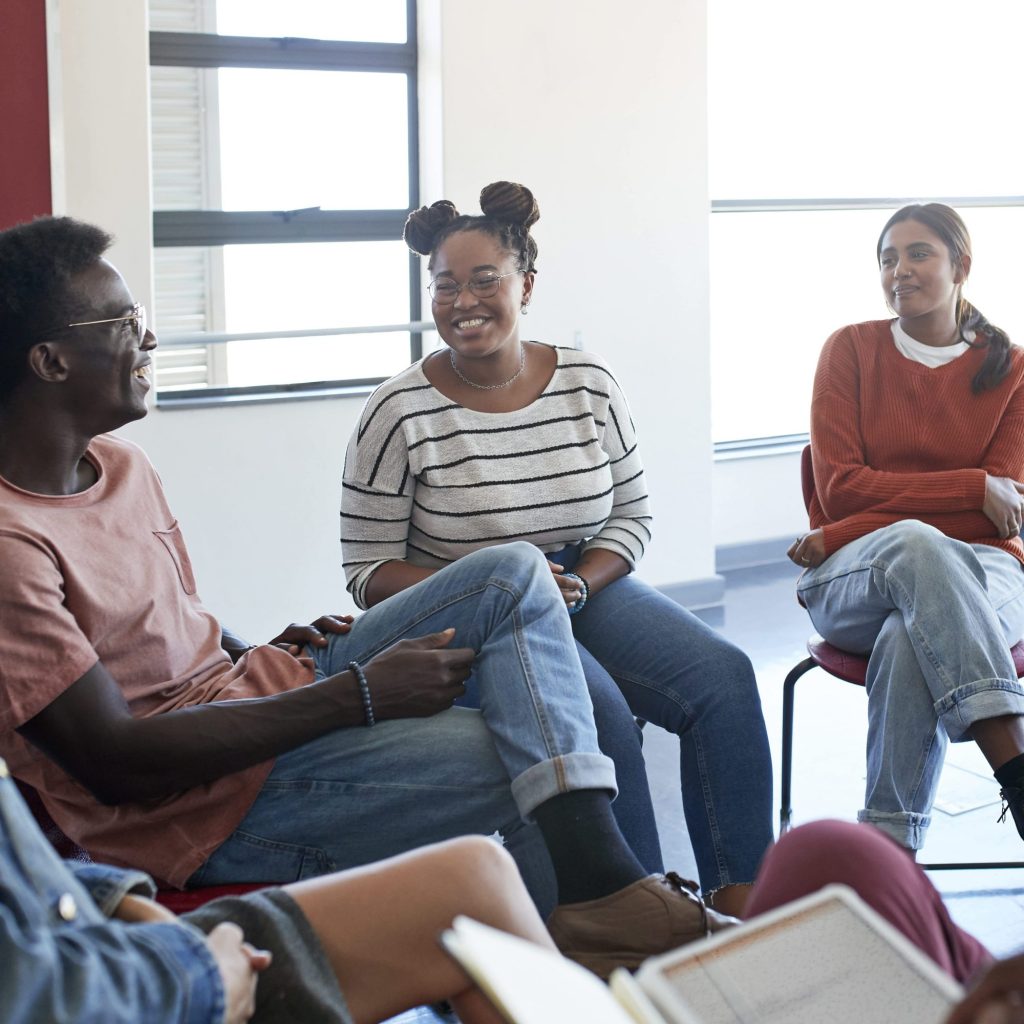The first day of my counseling program, I attended a three-hour class on leading and moderating group therapy sessions. We showed up to a classroom much like any other with desks and chairs arranged in rows. One by one, my classmates petered in and grabbed a seat. When our professor arrived, he instructed us to push all the desks to the back of the room and arrange the chairs in a big circle. There were 20 of us, and we had to make sure that everyone could easily make eye contact with each other.
We did a round of introductions, listing what we hoped to learn from the class. Next, our professor asked us to share with a partner something that had a big impact on our life and might affect how we interact with our future clients. The idea was to discuss a personal experience and then rejoin the larger group to debrief. He reassured us that this was a safe and confidential space.
I didn’t know my partner well. We had met briefly at a student mixer the week before. After listening to her recount a painful experience from her past, I felt comfortable opening up about how I had lost my dad at a young age. I was 7 years old when my dad succumbed to a heart attack. I spoke about loss and how this experience has helped me relate to others dealing with grief, anxiety, and depression.
I had always been an anxious kid, but my dad’s death took it to a whole new level. I went from stressing about learning long division and surviving the balance beam in gym class to worrying that my mom and grandma would meet the same fate as my dad. In addition to anxiety, I struggled with depression in high school. I internalized my grief and instead became the friend that everyone else would come to for advice and support. Sometimes they would joke that I was their therapist.
A career in psychology was always in the back of my mind. But it wasn’t until university that I seriously considered counseling as a full-time job. I always worried that I wouldn’t be able to help others when I was struggling with my own mental health. I felt like I needed to be in control of my anxiety or I would be wasting their time.
Now sitting in a classroom, spilling my guts to a room full of strangers suddenly felt like a big risk. When it was my turn to share, I pulled myself together and talked about my dad and how his death has affected me. Listening to my classmates’ stories of loss, divorce, and rejection made me realize our collective pain and what had inspired each of us to want to help others.
When we took a break midway through class, I walked over to my bag to grab some water. One of my classmates approached me with a puzzled look on her face.
Related: 5 Common Misperceptions About Seeing a Therapist, Straight From the Professionals
“I can’t believe you shared that,” she said. “I would never have shared such a personal story, especially on the first day.”
“It was a long time ago,” I explained. “I’ve talked about it a lot since then, so I guess it doesn’t feel that personal.”
“If it was me, I would never feel comfortable saying that to people I didn’t know,” she insisted.
As she walked away, I felt sick to my stomach. What was so bad about what I said? Did I overshare? Does everyone else feel this way? Is everyone else avoiding me? Should I have talked about something else? These thoughts kept rattling around in my head for the next hour. Suddenly our professor’s disclaimer that this was a safe space seemed to carry no weight at all.
Empathy is a skill that we need to build and nourish in our relationships with others. Being vulnerable is a gift, not a shortcoming.
In the three years I spent training to be a counselor, I would often think back to this conversation at our first group counseling class. It took me a while to put it into perspective, but here’s what I learned from my classmate’s comments. The concerns she raised came from her own discomfort, not mine, and this was not my burden to carry. My initial reaction was also just a part of my anxiety. I was focusing on one uncomfortable interaction and discounting the support and validation I felt from 18 other people.
I had sought therapy, so I knew what it was like from the other side. The last thing I would ever want to worry about was whether I was oversharing with my therapist. Being willing to be vulnerable and share my experiences in safe and not-so-safe spaces made me a better counselor.
When I started seeing clients in practice, it opened my eyes to the risk that they take coming into an office and disclosing personal stories to me, a total stranger. Empathy is a skill that we need to build and nourish in our relationships with others. Being vulnerable is a gift, not a shortcoming. It’s a big risk to open up to others, but it’s a risk worth taking, especially when it comes to our mental health.

